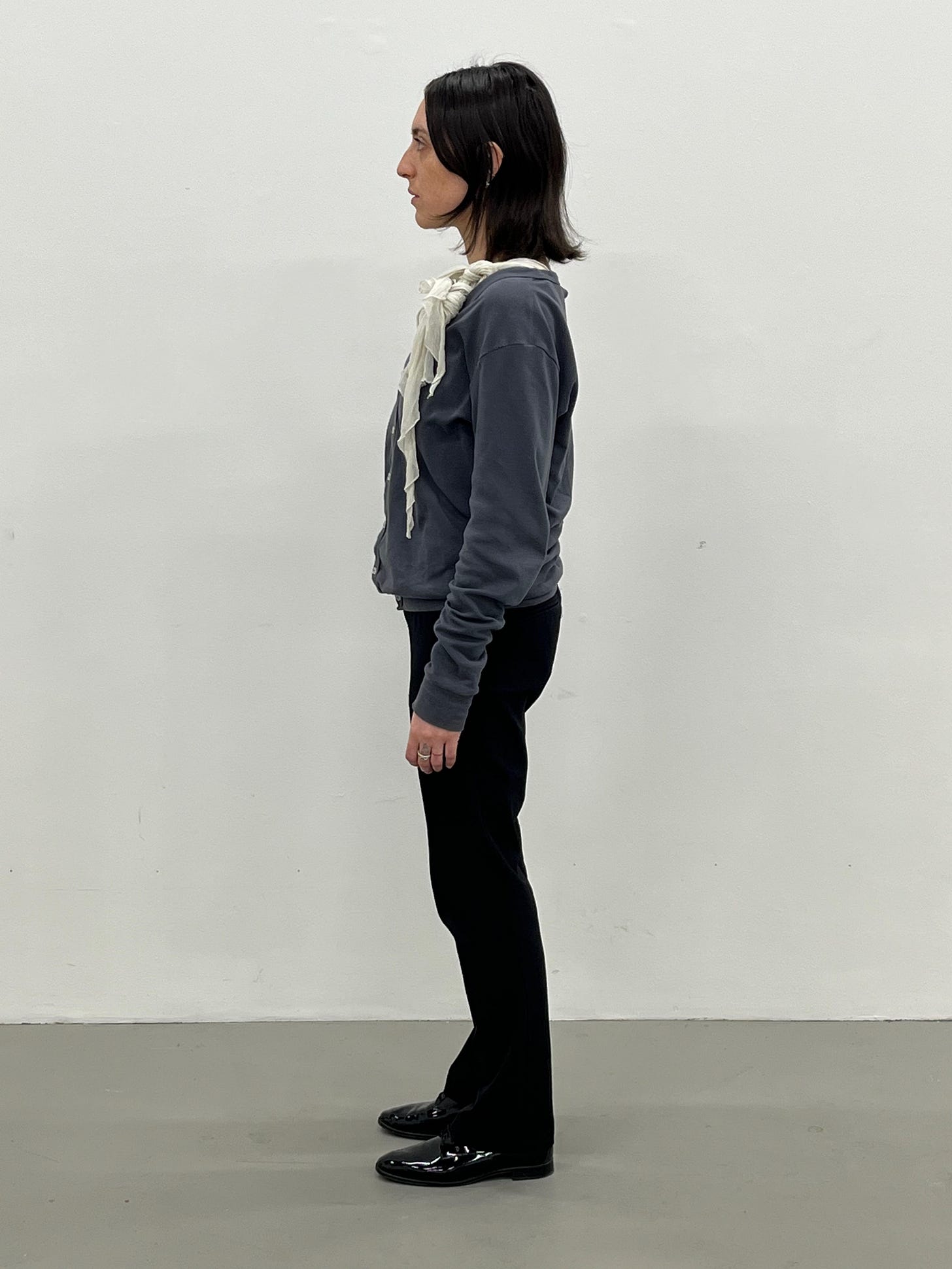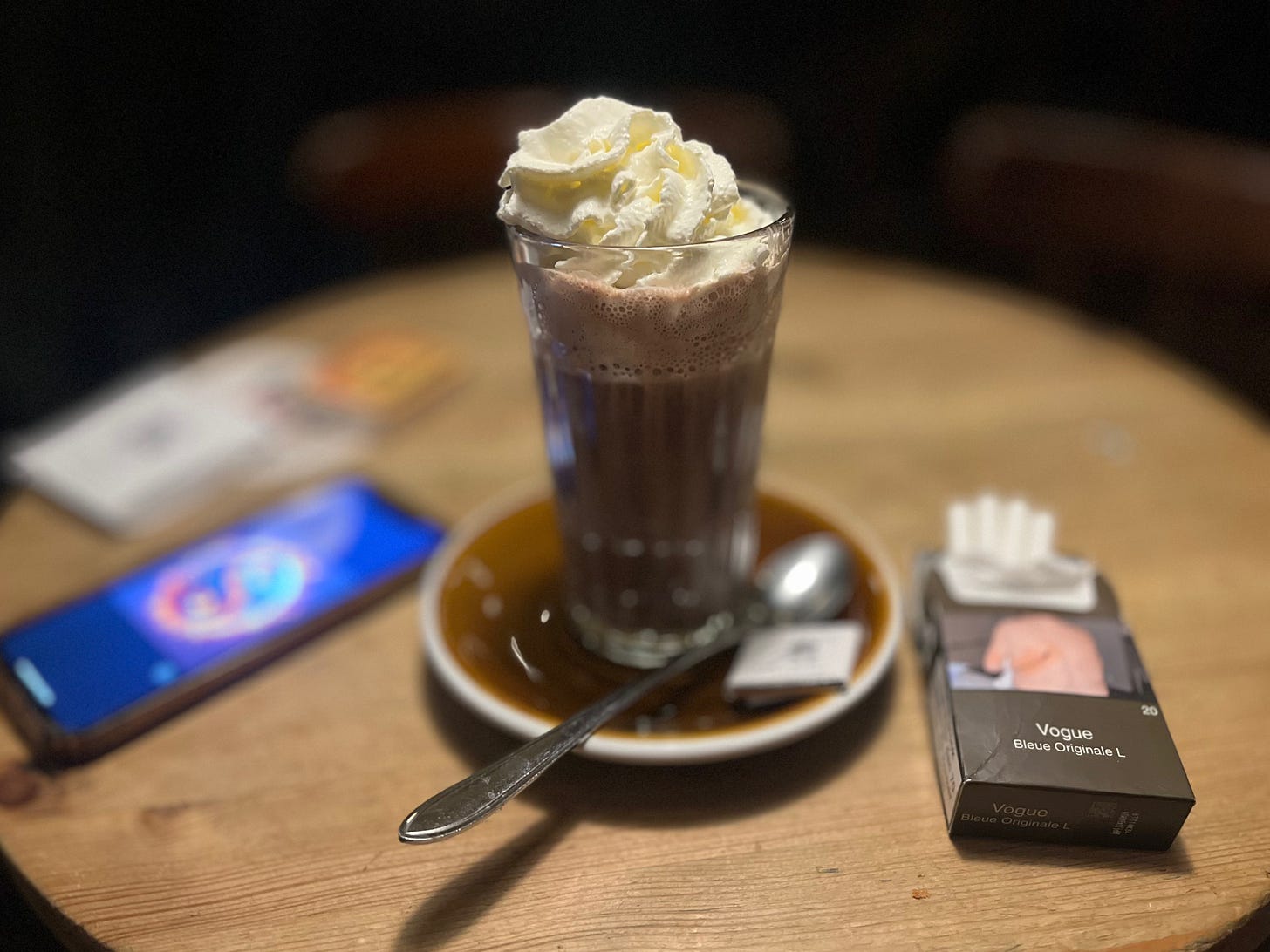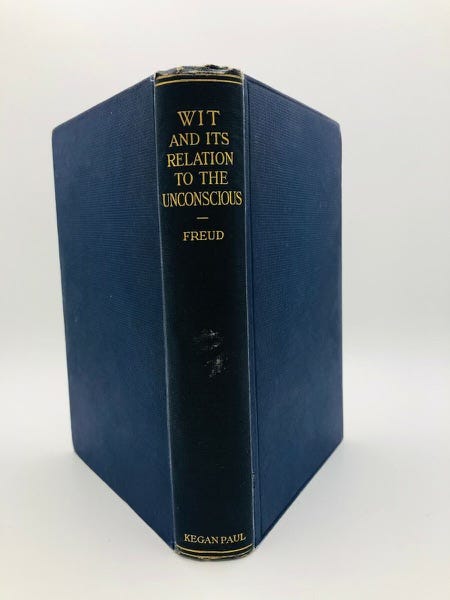#41: Emma Bombail
“When you love life to an extraordinary degree, everything feels like doing karaoke sober.”
Emma (@paris_bedbug) is an artist, writer, and co-organizer of the PROPAGANDA reading series. Her mid-century Portuguese baroque-gothic bed frame recently went viral and will be for sale later this year (maybe don’t message her about it).
Health Gossip with Emma
Sagittarius/Gemini/Sagittarius
Train N°504
What does health, or being healthy, mean to you?
I used to spend a concerning amount of time evaluating and scrutinizing myself, often based on loose criteria and internalized guilt. Being healthy now means letting go of the control I once constantly exerted on myself. There’s a difference between questioning out of drive and intuition and questioning out of a need for secure answers and anticipation. I’ve been slowly shifting between the two, and soon I hope I won’t need answers anymore. When I’m healthy, I forget about what I “should do” and do what I know I have to do instead.
How do you measure the quality of your own wellbeing?
Depending on how controlling I get and whether I catch myself singing out loud when I walk down the streets, and if I crack jokes. But if I can’t make jokes for a few days, it doesn’t necessarily mean I’m doing bad, though it usually makes everything feel narrower — thoughts, vision, chest, limbs, the range of my movements. Jokes are really helpful for letting off steam and tapping into your unconscious.
I was a troubled teenager who went through therapy very early on, stopped going to school for years, etc. I always thought I was so aware of “being sick,” but that was never true; I don’t think I’ve ever actually been sick. I like to think of it in other terms now. I had phases in my early twenties when I decided to go straight for months. I stopped, and now I only smoke and drink when I feel like it. When I know something will make me feel happy, I just do it.
How would you describe your current lifestyle?
I’m carried by my projects and my friendships. I’m lucky to be finishing my master’s degree, so I spend a lot of time at school and with my fellow students. We have lunch together at the cafeteria (“Mensa” in German), so I rarely cook during the week. We study in a rather small city, and I’m blessed with their constant presence — it feels like being in boarding school.
Evenings are more difficult; I usually have a hard time winding down. I always want to think about new things, watch movies, or read, but I’m exhausted and pretty much done for the day, so this superficial energy usually doesn’t go anywhere. I’m currently learning to let myself be alone and tired. I’m a daytime person — I like to be in bed before 10 p.m. and I fall asleep around midnight.
How do you start and end your days?
I spend five to ten minutes on my phone when I wake up, which I don’t think is such a good habit. Then it frustrates me, so I play some music to calm myself down, usually crooners. I sing, hum or mumble to give my brains time to emerge. Sometimes I work on my pronunciation (English isn’t my first language); I utter words and sentences that come to mind. If I dreamt, I try to remember it, store it in a corner and save it for my next psychoanalysis session.
Then I go to school and get on with my day. Sometimes I paint, sometimes I listen to music, sometimes I write in the library, send emails, organize readings, read books in the afternoon when I have time, talk with my friends, or attend a class meeting where we read poetry together. I rarely go out in the evening during the week, except to see operas and concerts.
What practices do you rely on when feeling ungrounded, unsettled, or “unhealthy,” per your definition above?
Singing into my €15 karaoke mic, drinking (alcohol and hot milk), doing psychoanalysis four times a week, listening to four or five songs on repeat, drinking valerian drops. I also do yoga every two or three days; it’s saved my life, too.
Are there any principles or mantras that guide you?
I try to avoid mantras and statements. I used to be a big believer in them because I needed help and something secure to cling to. If anything, psychoanalysis taught me that the life experiences and states we go through are always so complex, it’s difficult to apply principles to them. Plus, I’m way too gullible and end up believing in them wholeheartedly and applying them to everything and anything, and they eventually restrain me more than anything and stop me from seeing the situation as it is.
But there are ideas, word associations, and sentences that guide me and make me feel protected. Lately, I’ve been thinking about how underrated honesty is — people talk a lot about communicating but don’t realize that not communicating will be the death of them. You can save yourself months of confusion and worry by just taking a leap and enduring a few seconds of fear because you exposed yourself.







